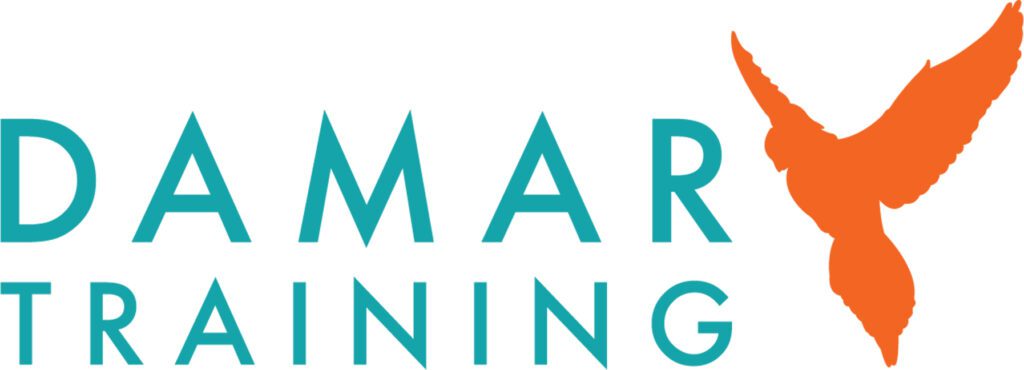What COVID-19 Has Taught Us About Apprenticeships

@DamarTraining reflect on what COVID-19 Has Taught Us About Apprenticeships
COVID-19 and the subsequent lockdown has impacted every aspect of our lives but what have these global events taught us about the ways in which training providers and employers can best support their apprentices to reach their full potential?
Apprentices can work from home
Many businesses across the country have continued to operate with staff working from home. Companies that previously thought this would be detrimental, either because they lacked the technology or because they thought that employees would reduce performance levels, have discovered that, with a few tweaks and changes, working from home is absolutely viable and may even be beneficial. As apprentices are usually new to the business and, in some cases, are in entry level roles where it might be the individual’s first full-time job, employers could have been particularly apprehensive about allowing these individuals to work off-site but we’re delighted to see that that is not the case. Here at Damar Training, we have many hundreds of apprentices who have been working from home very successfully! One of our articles from April, was a case study of Oliver Woodberry, an accounting apprentice at Pinsent Masons who is doing just that. Some of our apprentices have also commented that they have seen benefits in this way of working, such as a better work-life balance and saving time by not having to commute into work every day.
Apprenticeships need to be flexible
A few weeks ago, we published an article about the benefits of the 100% work-based model for apprenticeships. Traditionally, training was done on a day or block release basis and there are many colleges and training providers which still rely on this delivery model. But it’s very likely that we won’t completely return to the norms we had before, with people working on company premises and doing meetings face-to-face. This means that apprenticeship training delivery needs to be flexible enough to meet with a variety of employer and employee circumstances. The 100% work-based model does just that – it offers a blended approach of taught workshops, visits and online learning materials, all of which can be done remotely via technology such as Microsoft Teams and Damar OpenLearning, our e-learning platform which we’ve been using for several years.
Apprentices must be empowered to take ownership of their learning
“By 2030, 75 million to 375 million workers (3 to14% of the global workforce) will need to switch occupational categories. Moreover, all workers will need to adapt, as their occupations evolve alongside increasingly capable machines. Some of that adaptation will require higher educational attainment, or spending more time on activities that require social and emotional skills, creativity, high-level cognitive capabilities and other skills relatively hard to automate.” (McKinsey – The Future of Work)
This rate of change will be faster as a result of Covid-19, meaning that apprenticeships need to do much more that get someone through an end-point assessment if the benefit is to last more than a few years.
Apprentices who are accountable and feel empowered nearly always succeed. By taking ownership of their studies, managing their workload and seeking out learning opportunities, they are setting themselves up with the habits and skillset that will enable them to achieve their qualification, but also to progress, adapt, learn and thrive as the business world and job roles evolve.
Apprentices should be celebrated
It’s been important over the last couple of months to find positives and to show gratitude in our everyday lives. Captain Tom, the clap for carers campaign and many examples of people helping each other in their local communities, has shown us how we can support each other through even the most challenging of times.
We must celebrate apprentices and their achievements, to give them encouragement and make them feel valued. This improves their well-being and resilience as an individual, but it also increases their productivity and loyalty to the organisation. As a manager it can be easy to forget about people who are performing well and to focus energy on under-performers but this is a poor long-term strategy, which will only backfire in time as shining stars become demotivated. If you manage an apprentice, make sure you check-in with them on a regular basis and recognise the great job they are doing, balancing their studies with their role. At Damar Training, we have an Apprentice of the Month award and it has been really important to us to keep that going during this period. Last month, we actually gave out two awards, to Sherelle Corbridge, a Chartered Legal Executive Apprentice at CMS and Haider Malik, a Legal Admin Apprentice at Trowers & Hamlin LLP.
Apprenticeships are vital to economic recovery
As we start to come out of lockdown, the real effects on our local and national economy are going to become more evident and it will continue to be a challenging time. Businesses that have slowed down during this period, will need to re-group and re-energise and there is no better way to do that than to inject some fresh, new talent into a company. But there are also businesses that have grown during COVID-19, because of the particular goods or services they are able to offer. Apprenticeships will offer these employers a way to expand their business further and to upskill their existing staff, enabling employees to perform at a higher level.
Whilst finances will be challenging for some businesses, this doesn’t mean that training should fall by the wayside. 80% of businesses who have had an apprentice say that it has increased productivity, as well as staff retention and commitment across the entire workforce. And with apprenticeship training being fully funded via the Levy for Levy payers and 95% funded by the government for non-Levy payers, apprenticeships offer a great opportunity to get all the benefits that training brings, without having to pay commercial costs.












Responses